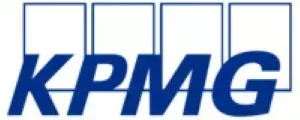During a press conference held on 24th March, the Prime Minister announced the third financial package to help the Maltese economy during the COVID-19 outbreak. The main thrust of this package is to preserve employment and as a corollary, to ensure that once the pandemic eases, the Maltese economy takes off quickly.
Measures targeting the hardest hit sectors
The Government will finance €800 per month per full-time employee to businesses that have been hardest hit by the COVID-19 outbreak. The same amount will also be paid to self-employed individuals engaged in such sectors. Employers who were constrained to lay off employees will be eligible for such payment if they re-engage the laid off employees. This measure applies retrospectively as from 9th March 2020 and is equally applicable to enterprises, including self-employed, operating in Gozo.
It appears that where the wage is in excess of €800 per month, the employers have agreed to top up the pay by €400 per employee per month. Nothing prohibits employers from paying more than the agreed minimum top-up, particularly when the salary is in excess of €1,200. In the event that businesses would not be in a position to finance the €400 top-up, the Prime Minister appealed for a case-by-case solution based on a discussion among all parties concerned, including the Department of Industrial and Employment Relations.
The €800 subsidy will replace the payment of two days' pay per week that had been announced last week.
The measure also applies to part-time employees at a reduced €500 per month.
The eligibility for the funding will be determined based on the NACE (Nomenclature of Economic Activities) codes of the business activity. The hardest hit sectors are those listed in Annex A on Malta Enterprise's website i.e. wholesale, retail, accommodation, food and beverage service activities, vehicle rentals and leasing, employment activities, tour operators, travel agencies and other related enterprises, security and investigation services, services to buildings, transport companies, creative arts, entertainment activities and personal services (like barbers, beauticians, hairdressers). This list should cover all those hit by forced closure.
Measures targeting less critical sectors
Government will cover the equivalent of a day's salary per week, with the possibility of increasing it to two days', based on a full-time salary of €800 per month (or part-time salary of €500 per month), in relation to employees of enterprises, including self-employed, who have been less impacted by the pandemic. Businesses and self-employed operating in Gozo in such sectors will get an outright subsidy equivalent to two days' pay, always based on a salary of €800 per month. Such measure is also applicable retrospectively as from 9th March 2020.
In the second financial package, self-employed who employ people were entitled to a two day's salary coverage (based on a full-time salary of €800 per month). During the press conference there was no clear mention of this measure. Yet the idea behind the third financial package is to make a more substantial liquidity injection into the economy than the previous financial packages. Thus, it is presumed that the said measure will be retained.
The less critical sectors are parts of wholesale, manufacturing, retail, warehousing and information, as listed in Annex B published on Malta Enterprise's website.
Applications for the measures will need to be submitted online.
This package of financial measures does not erode from the measures that have been announced last week, mainly:
- Tax deferrals and bank guarantees;
- A grant of €350 that will be awarded to employers for each employee required to be on mandatory quarantine leave;
- An unemployment benefit of €800 per month to workers who lost or will lose their job with effect from 9th March 2020;
- A benefit of €800 per month to persons with disabilities who have to stay at home due to health concerns that may arise as a consequence of COVID-19 and cannot telework;
- A benefit of €800 per month to a parent who takes additional leave to take care of children whilst schools remain closed, when both parents work in the private sector;
- Rent subsidies or increased rent subsidies to employees who lose their job and have rent to pay.
The content of this article is intended to provide a general guide to the subject matter. Specialist advice should be sought about your specific circumstances.

